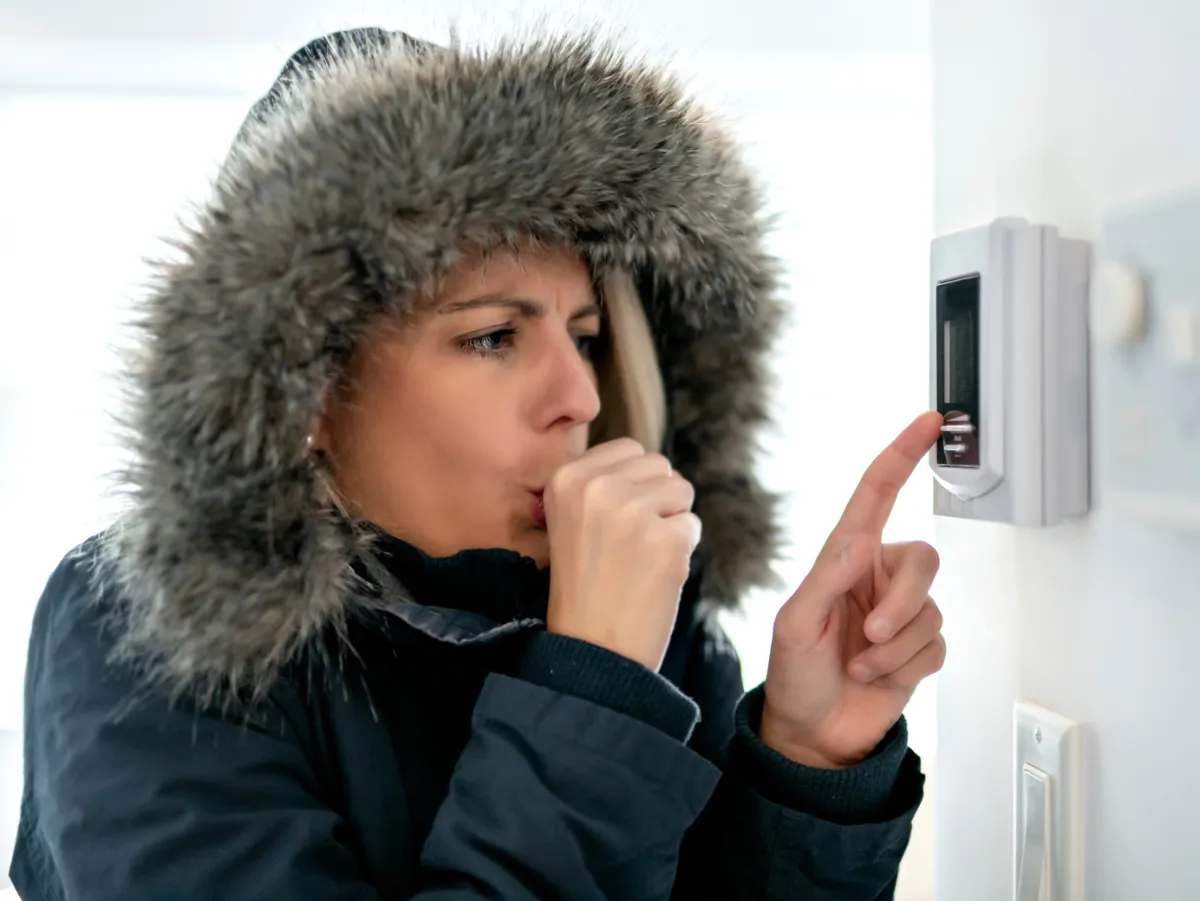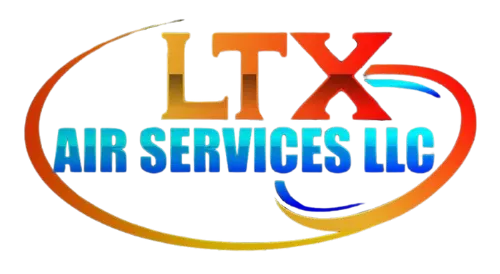
Why Is My Heater Blowing Cold Air? Causes & Fixes for Dallas Homeowners
When you finally turn on your heater during a chilly Dallas morning… the last thing you want is an icy blast hitting your face. Nothing wakes you up faster—but not in a good way.
If your heater is blowing cold air, don’t panic. This is one of the most common heating issues homeowners in Dallas, Mesquite, and Rockwall deal with every winter. And here’s the good news: not every cause means you need a major repair.
In this guide, we’ll walk you through the most common reasons your heater suddenly blows cold air, what you can check right now, and when it’s time to call the pros at LTX Air Services.
We’ll also share helpful resources you’ll want to bookmark, including:
→ Signs Your Heater Needs Repair
→ Heater Safety Inspection
→ Contact Us
→ Financing Options
Let’s get into it.
1. Your Thermostat Is Set Incorrectly
Before assuming the heater is broken, check your thermostat settings. It’s the easiest fix.
Common thermostat mistakes that cause cold air:
The thermostat is set to ON instead of AUTO
The temperature is set too low
The schedule is overriding your manual settings
The thermostat is placed near a window or heat source
Dead or weak thermostat batteries
What to do:
Make sure the thermostat is set to AUTO
Raise the temperature a few degrees
Replace the batteries
Restart the system
If your heater starts blowing cold air intermittently, it could be a sign of short cycling—more on that below.
2. The Heater Hasn’t Warmed Up Yet
If this is the first time you've turned on your heater this season, it might need a few minutes to deliver warm air.
Why this happens:
The ducts are full of cool air from the fall
The system is warming up the heat exchanger
Your home is large and airflow takes time to circulate
Let it run for 5–10 minutes. If warm air still doesn’t come out, move to the next step.
3. Your Air Filter Is Completely Clogged
A dirty filter can block airflow, causing your heater to overheat and shut down the burners for safety. When that happens, your system may still run the fan—but only cold air comes through the vents.
Signs your air filter is the issue:
Hot and cold spots in the home
Weak airflow from vents
Heater turns on and off rapidly
Filter looks gray, dusty, or caked
Quick fix:
Replace the filter with a clean, high-quality filter. Most homeowners in Dallas should replace their HVAC filter every 30–60 days, especially if they have:
Pets
Allergies
Dusty homes
Large families
If your heater keeps blowing cold air even after changing the filter, the system may have already overheated and needs a reset.
4. The Pilot Light Is Out (For Older Gas Furnaces)
If you have an older furnace, an extinguished pilot light is a very common cause of cold air.
Possible reasons the pilot went out:
Strong draft
Dirty pilot light port
Thermocouple issues
Gas supply problems
What to do:
Check your furnace manual for pilot light instructions
Look for a small flame near the bottom panel
Relight if you feel comfortable (and ONLY if you smell no gas)
If it won’t stay lit, call a professional
A pilot light that repeatedly goes out usually means you have a thermocouple problem, which should be handled by a licensed HVAC technician.
5. The Furnace Is Overheating
When a furnace overheats, it goes into protection mode. That means the burners turn off, but the fan keeps blowing—pushing cold air through the vents.
Overheating is caused by:
Dirty filter
Blocked vents
Dirty blower motor
Dust buildup inside the furnace
Mechanical failure
Why this matters:
Overheating is one of the top warning signs that you need a repair.
Check out:
👉 Signs Your Heater Needs Repair
Continuing to run an overheating furnace can damage:
The heat exchanger
The blower motor
Internal wiring
Burners
If the system smells hot or burnt, shut it off and call a tech.

6. Issues With the Heat Exchanger
Your heat exchanger is the heart of your furnace. If it’s cracked, damaged, or malfunctioning, the furnace may:
Blow cold air
Shut down repeatedly
Fail to heat your home evenly
Warning signs:
Burning smell
Rattling sounds
Yellow or flickering flames in gas furnaces
Carbon monoxide detectors going off
This is a serious issue.
A damaged heat exchanger can leak carbon monoxide. Turn off your system and call a professional immediately if you suspect this.
7. Your Ductwork Has Leaks
If parts of your home get warm while others stay cold, the issue may be duct leakage.
How duct leaks cause cold air:
Warm air escapes into the attic
Cold attic air gets pulled into the ducts
Rooms farthest from the furnace stay cold
Dallas homes with older duct systems are especially prone to this.
Fix:
A professional duct inspection or duct sealing service.
This is also a great add-on during your annual heater safety inspection.
8. Low Refrigerant (For Heat Pump Systems)
If you have a heat pump, not a furnace, cold air could mean your system is low on refrigerant.
Signs your heat pump needs service:
Ice on the outdoor unit
Hissing noise
High energy bills
Weak airflow
Cold air in heating mode
Refrigerant is NOT something homeowners should attempt to handle — it requires a licensed HVAC tech.
9. It’s Time for a Heater Safety Inspection
Many issues that lead to cold air can be prevented with annual maintenance.
That’s why we strongly recommend a professional heater safety inspection every fall.
Check out the full breakdown here:
👉 Heater Safety Inspection in Dallas, TX
A safety inspection helps prevent:
Carbon monoxide leaks
Heater breakdowns
Electrical issues
Costly repairs
Heating inconsistencies
And it keeps your home comfortable all winter long.
When Should You Call LTX Air Services?
You should call a professional when:
Your heater blows cold air for more than 10 minutes
Your thermostat is working but your home isn’t getting warmer
You hear strange noises or smell something burning
The system turns on and off constantly
The pilot light keeps going out
Your heat pump is frozen
Your furnace hasn’t been serviced in a year
Need help today?
👉 Contact LTX Air Services
If you’re worried about unexpected repair costs, you’re not alone.
We offer financing to make repairs or replacements easier on your budget:
👉 View Financing Options
FAQ: Heater Blowing Cold Air in Dallas
1. Why is my heater blowing cold air sometimes and warm air other times?
This usually means your system is overheating, short-cycling, or struggling with airflow issues. Dirty filters, blocked vents, or malfunctioning sensors are common causes. If the system keeps switching back and forth, schedule a repair before damage occurs.
2. How do I fix a heater that’s blowing cold air?
Start by checking your thermostat settings, replacing the filter, and making sure the heater has warmed up. If none of these help, there may be a mechanical issue that requires professional service.
3. Can a dirty air filter make my heater blow cold air?
Yes. A clogged filter blocks airflow, causing overheating and safety shut-offs. This often leads to cold air blowing even though the system is running.
4. Why does my heater blow cold air at night?
Nighttime temperature drops can cause the heater to work harder. If it can’t keep up, the issue may be with airflow, duct leaks, or a thermostat problem.
5. How do I know if my heater needs repair?
If you’re experiencing cold air, unusual noises, burning smells, or rising energy bills, your heater likely needs professional attention. Read the full breakdown:
👉 Signs Your Heater Needs Repair
6. Should I repair or replace my heater if it’s blowing cold air?
It depends on the age of your system. Heaters over 12–15 years old may be due for replacement, especially if they require frequent repairs. Financing can help make the replacement easier:
👉 Financing Options
7. When should I call an HVAC technician?
If the heater blows cold air for more than 10 minutes, the pilot light won’t stay lit, or the system short-cycles, it’s time to contact a professional:
👉 Schedule a Service
Stay Warm, Dallas!
If your heater is blowing cold air, don’t wait until it stops working completely.
LTX Air Services is here to keep your home safe, warm, and comfortable — 24/7.
📞 Call today or book online:
👉 Contact LTX Air Services
Need help covering repairs or replacement costs?
👉 Explore Financing Options
Stay warm, stay safe — and let us handle the rest.
